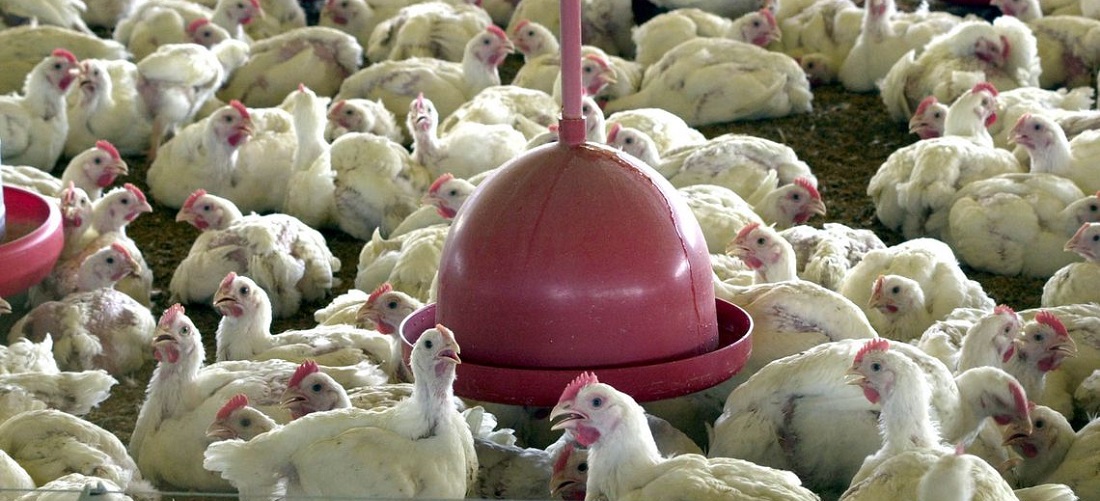
Avian flu hits Argentina, Uruguay
Feb, 16, 2023 Posted by Gabriel MalheirosWeek 202308
Argentina and Uruguay confirmed the first cases of highly pathogenic avian flu identified in their respective territories yesterday (Feb 15). The disease was discovered, in both cases, in wild birds that had recently died in national parks. The Brazilian government has already begun discussions with the authorities in neighboring countries to assess the risk of the virus crossing the border.
On Monday, five black-necked swans turned up dead off the coast of Laguna Garzon, Uruguay, displaying symptoms of the disease. Laboratory tests confirmed the health authorities’ suspicions. In Argentina, Andean geese found in Laguna de los Pozuelos, north of the province of Jujuy, tested positive for the disease.
“It is not a surprise,” officials from both countries said over press conferences held to detail the cases and talk about measures. “Analyses of epidemiological development indicated the presence of the disease on all continents, taking large strides in North and South America,” explained the Minister of Agriculture and Livestock of Uruguay, Fernando Mattos.
Avian flu is a highly contagious disease that affects domestic and wild birds and can cause significant harm to breeders. However, the Minister of Agriculture of Uruguay explained that there will be no sanctions on protein exports as these are cases involving wild animals.
“We are taking the necessary steps to protect poultry production, which is a vital social activity,” he said. “It poses a greater threat to home-bred birds, which typically lack the same levels of biosecurity as commercial farms.”
Mattos stressed that the chances of the disease being transmitted to humans are low. The two cases registered to date – in 2022 in the USA and 2023 in Ecuador – were due to very close contact between sick animals and humans. “The disease is not transmitted to humans through meat consumption,” he stressed.
In a press conference, the Brazilian Minister of Agriculture, Carlos Fávaro, said Brazil will amplify inspection and active monitoring of avian flu after the new cases in South America. The place where the infected bird was identified in Uruguay is just 180 kilometers from the border with Rio Grande do Sul.
He stated that the flow will not be disrupted at the borders but that inspection strictness will be increased. As Brazil does not import poultry from countries where cases have already been registered in commercial farms, such as Bolivia, Ecuador, and Peru, no barriers will be imposed.
Fávaro stated that Brazil has no confirmed or suspected cases of avian flu and that the country remains free of the virus. Two wild birds with flu-like symptoms were captured in Rio Grande do Sul a few weeks ago, but tests did not reveal avian flu. In addition, domestic poultry (duck and chicken) from Manaus (AM) with suspected cases were tested last Friday, but the results were also negative for the disease.
The Secretary of Agricultural Defense, Carlos Goulart, said that the Brazilian defense system, which helps to monitor avian flu, spent the day yesterday in a meeting to “establish the chain of command and action in case of detection or symptoms of influenza avian.” He pointed out that the risk of the disease being introduced in the country is high due to the flow of migratory birds.
“The risks are higher from now to around April and May. We are going to remain in the acute phase of risk until the birds return to the Northern Hemisphere in their natural migration pattern, which occurs every year,” explained Goulart.
Any trade barriers can only be imposed if highly pathogenic avian influenza is found in commercially bred birds. Nonetheless, the disease’s approach to Brazilian borders concerns producers and exporters. Last year, the spread of flu in other exporters favored Brazilian sales.
According to the Brazilian Association of Animal Protein (ABPA), biosecurity protocols in Brazil remain high, particularly in the protection of industrial herds, with a total ban on visits to farms and production units, among other health care already adopted by agroindustries, such as complete control of the flow of birds and feed, disinfection of vehicles, changes of clothes, and reinforcement of property protections against migratory birds.
“Our farms have excellent health rates, which does not concern us. “It never hurts to have more prevention measures on properties when there is a risk of migratory birds arriving,” Fávaro said.
Source: Valor Econômico
To read the original reporting, access: https://valor.globo.com/agronegocios/noticia/2023/02/16/argentina-e-uruguai-tem-casos-de-gripe-aviaria.ghtml
-
Ports and Terminals
Mar, 04, 2024
0
São Sebastião Port performs unprecedented bulk sugar export operation
-
Nov, 25, 2021
0
In new decision, TRF4 confirms dredging of the Palangana stones, at Paranaguá
-
Meat
Feb, 11, 2025
0
Meat industry expects export growth with Suriname market opening
-
Ports and Terminals
Oct, 08, 2020
0
G-20 report says Brazil´s port privatization plan could boost its share of world maritime trade

